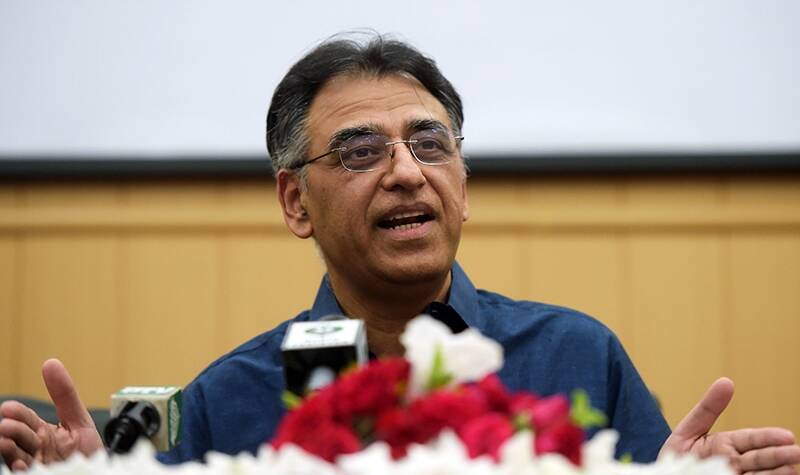While giving a talk at the Wilson Center, the Federal Minister for Planning, Development, Reform and Special Initiatives, Asad Umar, praised the American intellectuals and invited them for investment in CPEC. Minister Umar also gave a detailed presentation on CPEC and its future plans. He also highlighted that US has always been Pakistan’s top export destination and that Pakistan’s major debt is owed to traditional lenders and not China.
Federal Planning, Development, Reform and Special Initiatives Minister Asad Umar praised American intellectuals for future investment opportunities in the China-Pakistan Economic Corridor (CPEC).
Asad Umar gave a talk at Wilson Center, Washington DC Saturday on the topic “What next for the China-Pakistan Economic Corridor”? The talk was moderated by former US ambassador to Pakistan David Hale, and distinguished diplomat fellow at Atlantic Council.
A large number of participants representing the think-tank and academic community joined the talk virtually, said a press release issued here. Asad Umar gave a detailed presentation on CPEC focusing on its current status, future plans and CPEC’s importance in the larger dynamics shaping the regional economic activity by promoting regional connectivity.
The minister highlighted that the four Special Economic Zones and the Gwadar Free Zone being established under CPEC were open for investment from any country. The minister also mentioned that the US was still the top export destination for Pakistan and the Pakistani diaspora living in the US was making a very important contribution to Pakistan’s socio-economic progress through their remittances.
The minister also noted that contrary to the general perception China was not Pakistan’s largest creditor and that Pakistan’s majority debt was owed to traditional lenders. He hoped that with the vastly improved security situation in Pakistan, FDI from the US will also increase correspondingly.
Asad Umar stressed that peace and stability in Afghanistan were vital for realisation of Pakistan’s geo-economic vision. He urged the international community to work together in ensuring that Afghanistan does not slide back into internal conflict that will lead to instability, humanitarian catastrophe and economic collapse. The minister’s remarks were followed by a Q&A session, in which the minister gave detailed replies to participants’ questions related to diverse areas.
















